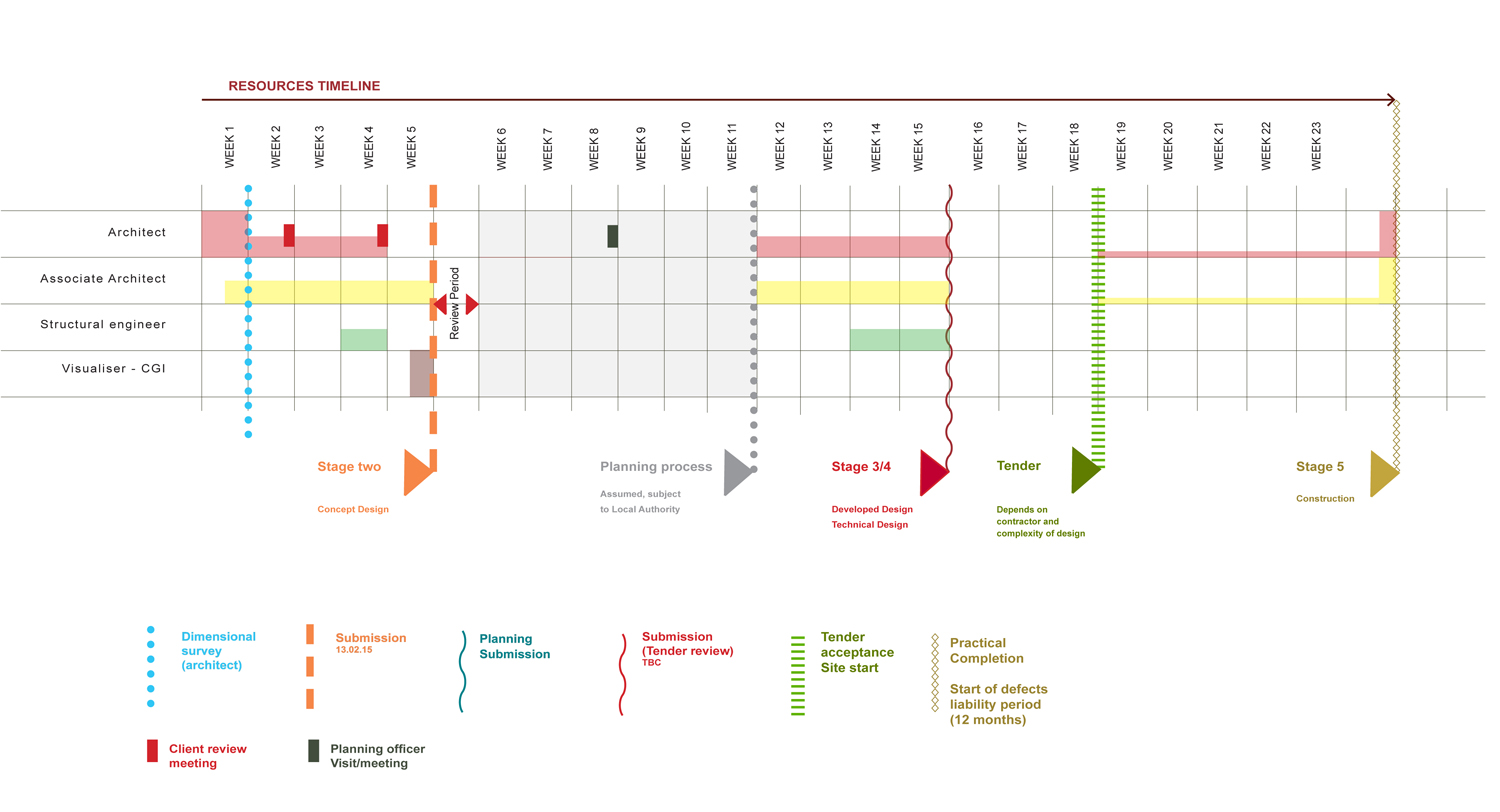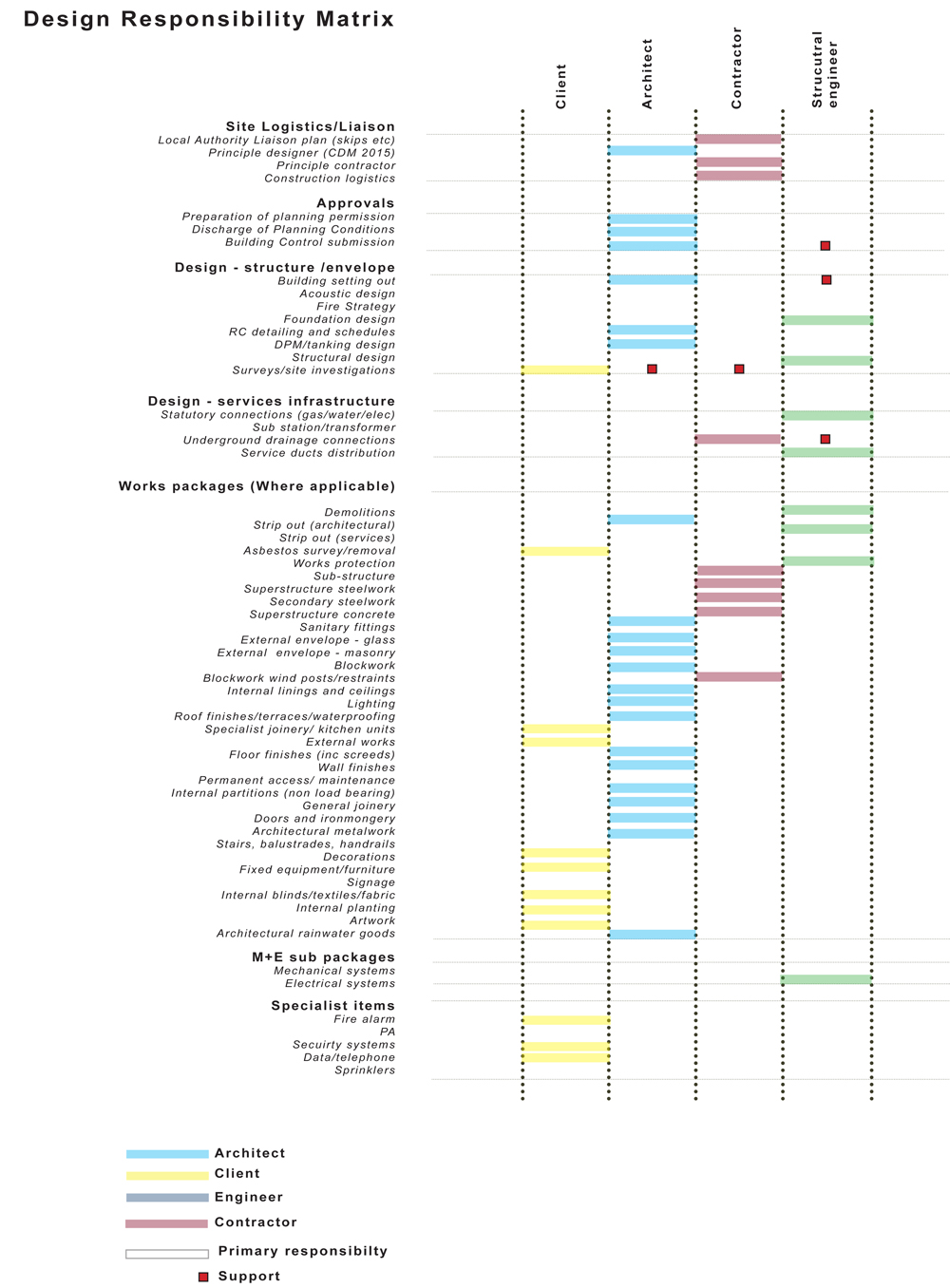1 – Ambition
Ensure clarity of instruction to the design team and the contractor. Contrary to popular belief, most projects are late or over budget due to directed change during construction, as opposed to omissions and errors. Late change or inadequate project planning can cause confusion and inevitably impacts on quality. Therefore, effective project planning is essential to achieve quality ambitions.
2 – Prudence
Never pay deposits or money ‘up front’. If a contractor is unable to get credit from building suppliers, there will be a reason for it. Payment is only due when construction materials are integrated into the building and become ‘of the land’.
3 – Clarity
Always have a written agreement – whether an exchange of letters with terms or a standard form of contract.
4 – Innovation
Clear and positive communication with planning authorities is essential. Provided the project is within local policy, planners are generally positive about progressive development. Any temptation to circumnavigate the statutory planning processes should be resisted.
5 – Professional
Only engage professionals who carry professional indemnity insurance. Registered Architects are required by law to carry such insurance. To check whether a consultant is registered, and therefore entitled to use the legally protected title ‘Architect’, refer to the ARB register.
6 – Health
Ensure that your design team and contractor understand and implement the requirements of the Construction and Design Management (CDM) regulations. The amended statute (2015) imposes obligations on clients on projects of all sizes to ensure that the project is undertaken with due regard for Health and Safety.
7 – Communication
Agree and record a schedule of responsibilities with your architect and design team. This should avoid any disputes about payment and ensures that all necessary activities are undertaken at the
correct point in the project programme.


